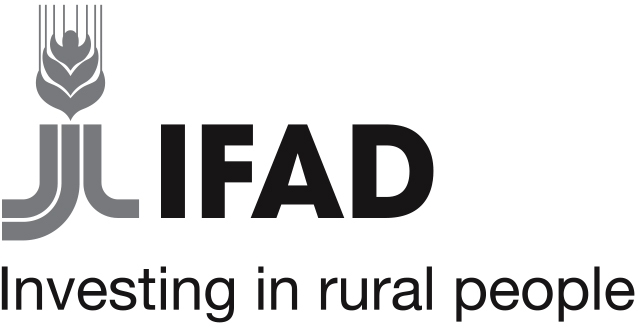Coffee industry regeneration in Sao Tome and Principe
BACKGROUND
To regenerate Sao Tome and Principe's once-thriving coffee trade, a cooperative of local growers partnered with international commercial producers and organizations. Through the support of commercial, agricultural and scientific experts, the region is now producing gourmet-quality coffee.
WHAT’S INVOLVED
Smallholder organization
The CECAFEB grower cooperative was at the heart of the project, and its members worked with SEM, a Salvadorian training institute, French coffee company Malongo and bodies in El Salvador and Mexico. Part of their task was to professionalize all members of the coffee production value chain, and set up producers' organizations to better exploit market opportunities.
Knowledge sharing
The project brought together commercial experts from Malongo, Mexican and Salvadorian technicians who helped control pests, and many other stakeholders from the production, processing, marketing and export sides of the coffee business from the various nations involved.
Reforestation and plantation renewal
Sao Tome and Principe's coffee plantations required rehabilitation and re-planting. CECAFEB developed a reforestation plan and the establishment of nurseries to support this goal.EXPLORE THIS SOLUTION
This project can offer
- Insights on international and private-public collaboration, involving growers, corporations and public bodies.
- Development of production for a high-quality product, including certification requirements, seed and genetic selection and processing.

Countries involved
El Salvador, México, Sao Tome and Principe
Project partners
CECAFEB, Malongo
Share this solution
Bookmark this solution
BookmarkShow Full Solution
Summary
Sao Tome and Principe was losing its remarkable past experience in coffee production and processing. Two innovative approaches promoted under the Participatory Smallholder Agriculture and Artisanal Fisheries Development Programme (PAPAFPA) helped reverse this decline. The first was a public-private partnership between a French private coffee operator, Malongo, and a cooperative of local coffee smallholders (CECAFEB). The second was a partnership between CECAFEB and a training institute (SEM) from El Salvador to develop solutions for the coffee industry and to establish a framework cooperation agreement for future development of the local coffee industry.
Challenge
Sao Tome and Principe had experienced a rapid loss of its remarkable past tradition in coffee production and processing. The local coffee producer cooperative CECAFEB needed a way to reverse this trend and introduce high-quantity, high-quality production in the coffee sector aimed mainly at the export market.
A specific challenge within this project was the professionalization of all players along the coffee value chain in order to better exploit the existing potential of local production, deliver a high quality product and ensure the co-operative’s long-term (technical and financial) sustainability.
Solution
To reverse the decline and relaunch coffee production the PAPAFPA project introduced the following partnerships:
- between the local Government and institutes in El Salvador and Mexico to assist the local smallholders coffee cooperative (CECAFEB)
- with a French private coffee operator (Malongo) to facilitate exports.
The guidance provided by Malongo and the institute from El Salvador (SEM) allowed CECAFEB to address the constraints faced by coffee producers. From 2011 CECAFEB has benefitted from SEM’s technical knowledge and training in coffee production, processing and marketing.
SEM and CECAFEB also established a framework cooperation agreement that included an action plan comprising:
- rehabilitation of coffee plantations
- implementation of a reforestation plan through the creation of nurseries
- organizing smallholder growers into producer associations in order also to meet the fair-trade certification requirements
- implementing an agro-industrial unit (wet-treatment unit) for the processing of fresh coffee beans
- supporting the production and trade of food security crops to complement incomes derived from coffee production.
Mexico was also involved in exchange programmes focused on training in production techniques, management of coffee cooperatives, centralization of processing techniques, and technical issues.
Results
This type of South-South exchange helped the country revive its past coffee tradition and was an opportunity to better understand how collaboration among countries and partnership is pivotal to the achievement of good results. Key results to date include:
About 30 ha/year of coffee trees renovated by the cooperative.
Most plots are better maintained, and farmers show an enhanced commitment to the management of their production units, which were almost abandoned until 2010.
CECAFEB is paying extra attention to the selection of the genetic material used for replanting purposes and in selecting growers to work with – for setting up nurseries, selection of genetic material, etc.
Some coffee samples from CECAFEB producers were analyzed in El Salvador, where laboratory and gustative tests highlighted the high quality potential of local supplies: samples received an 85 grade on the SCCA scale, which corresponds to the premium or gourmet category
Use of traps, installed and managed as per instructions received from Mexican and Salvadorian technicians, is proving very effective to counteract pest attacks.
Lessons learned and potential for replication
Cooperation between SEM and institutes in El Salvador and Mexico has provided useful technical and managerial inputs to both the CECAFEB co-op and to its members. Dialogue among peers (technicians or producers) belonging to different countries and learning exchanges have highly facilitated transmission of know-how and adoption of good practices by final beneficiaries.
Independent laboratory and organoleptic tests by peer organizations highlighted the high market potentials of Sao Tome and Principe coffee supplies and therefore the potential for exploration of the most promising market niches, provided the industry revitalization work is properly implemented by CECAFEB and its members.
Next steps
While all partners recognize the progress made by the various actors of this value-chain since 2010, there are challenges ahead, and support from the Central American partners will continue to be sought and encouraged by both IFAD and Malongo.
Solution Additional Resources
Participatory Smallholder Agriculture and Artisanal Fisheries Development Programme (PAPAFPA) - Project web pageLast update: 09/08/2018

